Anaemia is a medical condition in which the body has a reduced number of red blood cells or a lower-than-normal concentration of haemoglobin. Haemoglobin is the oxygen-carrying protein in red blood cells, responsible for delivering oxygen from the lungs to various tissues and organs. When haemoglobin levels are low, the oxygen supply to the body’s organs becomes inadequate, leading to symptoms such as fatigue, weakness, and shortness of breath1.
While conventional treatments for anaemia are effective and often necessary, several natural and home-based remedies can support recovery and improve overall haemoglobin levels. If you’re interested in exploring safe and holistic options for managing anaemia, the following home remedies may be helpful.
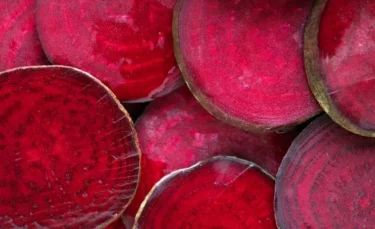
Beetroot is often recommended as a supportive food for individuals with anaemia due to its iron and folate content, which are essential for red blood cell production. Regular consumption may help improve haemoglobin levels, thereby supporting better oxygen transport in the body2.
Beetroot can be consumed in various forms, raw as part of a salad, steamed or cooked as a vegetable, or blended into juice. Drinking beetroot juice on an empty stomach is a popular method for maximising nutrient absorption.
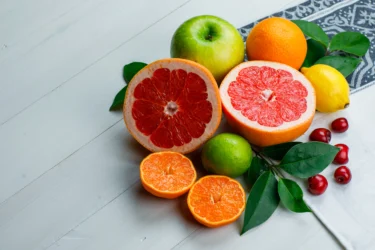
Regular intake of vitamin C has been shown to improve iron absorption in individuals with iron-deficiency anaemia. Vitamin C enhances the intestinal absorption of non-haeme iron (plant-based iron), thereby supporting improved haemoglobin production3.
Include natural sources of vitamin C in your daily diet, such as oranges, lemons, sweet limes, amla (Indian gooseberry), and guavas. Consuming these fruits regularly can aid in better iron absorption and support recovery from anaemia4.
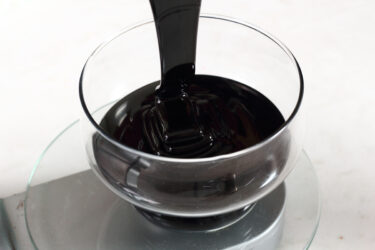
Blackstrap molasses is a rich natural source of iron, along with B vitamins and essential minerals like magnesium and calcium. Regular consumption can support the production of red blood cells and improve haemoglobin levels, making it beneficial for individuals with iron-deficiency anaemia5. One way to consume blackstrap molasses is by mixing a teaspoon into a cup of warm water or plant-based milk. This can be taken once daily, preferably on an empty stomach, to enhance iron absorption.
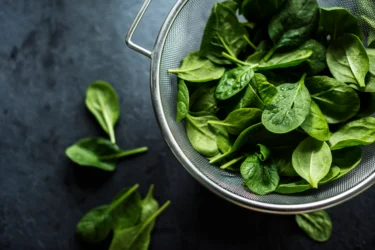
Anaemia can result from various nutritional deficiencies, including folic acid, which is essential for the production of healthy red blood cells. A deficiency in folic acid can lead to megaloblastic anaemia, characterised by large, immature red blood cells that cannot function properly. Including spinach in your regular diet can help manage folic acid deficiency, as it is a rich source of folate along with iron, vitamin A, and vitamin C. While spinach does not contain vitamin B12, it still supports overall blood health and should be consumed regularly in cooked or lightly sautéed forms to enhance nutrient absorption.
Severe iron deficiency anaemia may increase your risk of developing complications that affect the heart or lungs, such as an abnormally fast heartbeat (tachycardia) or heart failure. It is pertinent to get treated for anaemia as soon as you experience any symptoms of anaemia.
Dr Ashish Bajaj, M.B.B.S, M.D. in Clinical Pharmacology and Toxicology

Bananas are a nutritious fruit containing moderate amounts of vitamin C, folate, and potassium, which contribute to overall health and support the body’s metabolic functions. While they contain only a small amount of iron, the vitamin C present may aid in enhancing iron absorption from other dietary sources. Therefore, bananas can be included as a supportive food in a balanced diet aimed at improving haemoglobin levels, but they should not be considered a primary treatment for iron-deficiency anaemia7.
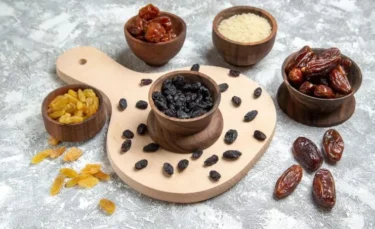
Raisins and dates are natural sources of dietary iron and provide some fibre and energy. Although they contain only trace amounts of vitamin C, pairing them with fruits rich in vitamin C, such as oranges or amla can help improve iron absorption8,9. Including soaked dates, raisins, and figs a few times a week as part of a balanced diet may help support haemoglobin levels over time, especially when combined with other iron-rich and vitamin C-rich foods10.
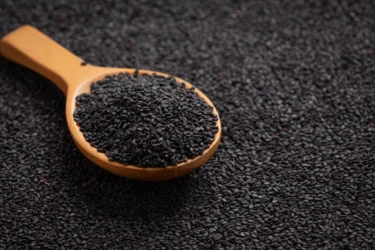
Black sesame seeds are a good plant-based source of iron, along with calcium and magnesium. While they do not directly enhance iron absorption, their inclusion in the diet can support iron intake, especially for individuals following a vegetarian diet. Soaking a teaspoon of black sesame seeds overnight and consuming them the next morning, either chewed or as a paste may help improve mineral availability slightly. For best results, pair with foods rich in vitamin C to enhance iron absorption11.
Many natural remedies that can help support anaemia management are found right in your kitchen. Choosing the right foods and herbs can complement your treatment and improve your overall health.
Certain plants and foods in nature can help improve symptoms of anaemia. For example, tulsi (holy basil) contains antioxidants and vitamin C, which aids iron absorption. Beetroot is rich in folic acid, an important nutrient for red blood cell formation. Fruits like pomegranates and apples provide a good source of iron. Including foods rich in vitamin C, such as citrus fruits, alongside iron-rich foods can enhance the body’s ability to absorb iron effectively.
Dr. M.G. Kartheeka, MBBS, MD (Paediatrics)
Also Read: Natural Home Remedies for Diabetes By Dr. Rajeev Singh
It is important to create a balanced diet plan to support its management. Before focusing on specific foods, keep the following points in mind when planning your diet:
Now, here are some of the common foods you can consume to treat anaemia:
Also Read: Home Remedies for Jaundice By Dr. Siddharth Gupta
Anaemia can be managed effectively by combining medical treatment with a balanced diet rich in iron and supporting nutrients. Including natural remedies and vitamin C-rich foods helps improve iron absorption and overall health. Always seek professional advice alongside these home-based approaches for best results.
Also Read: Simple Home Remedies for Swollen Gums
Disclaimer: The information provided here is for educational/awareness purposes only and is not intended to be a substitute for medical treatment by a healthcare professional and should not be relied upon to diagnose or treat any medical condition. The reader should consult a registered medical practitioner to determine the appropriateness of the information and before consuming any medication. PharmEasy does not provide any guarantee or warranty (express or implied) regarding the accuracy, adequacy, completeness, legality, reliability or usefulness of the information; and disclaims any liability arising thereof.